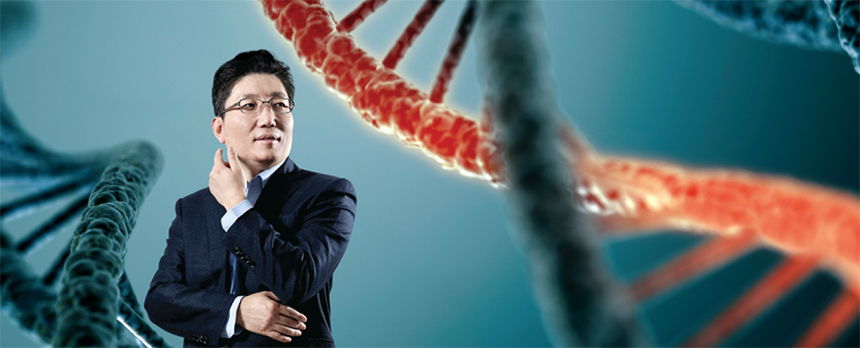show mobile menu
mobile menu
Professor Lee Min-Goo’s Research Team elucidates New trafficking Pathway ofMembrane Proteins
 Prof. Lee has been studying the transport of small molecules across the cell membrane and its implications in human health and disease throughout his 24-year career as a basic scientist. This resulted in more than 100-publications, mostly in major peer-reviewed journals such as Cell, Nature, J Clin Invest, Gastroenterology, and PNAS USA. He has focused his research on the following three topics: i) molecular mechanism of transmembrane transport of ions and small molecules, ii) genetic variations in the membrane transporter genes and their implications in human disease, and iii) intracellular trafficking and processing of membrane transporting proteins. Recently, his research team discovered that GRASP restores mutant CFTR function and rescues survival of mouse models of cystic fibrosis without apparent toxicity (Cell, 2011). Mutations in membrane transporter genes cause human diseases, in many cases due to defects in protein folding and trafficking from the ER to the cell surface. The most common disease-causing (cystic fibrosis) mutation of CFTR is the deletion of phenylalanine at position 508 (ΔF508), which leads to defects in cell surface expression of CFTR. Prof. Lee’s team found that ΔF508-CFTR surface expression can be rescued in vitro and in vivo by directing it to an alternative unconventional GRASP-dependent secretion pathway. This finding provides insight into how an unconventional protein secretion is activated and offers a promising new therapeutic strategy for the treatment of diseases stemming from misfolded proteins. Meanwhile, his research team also made several other important discoveries on the molecular mechanisms of membrane transport, which include the involvement of Shank2 in autism (Nature, 2012) and the regulation of epithelial bicarbonate transport (Physiol Rev, 2012; PNAS USA, 2013). |
Recommended Articles